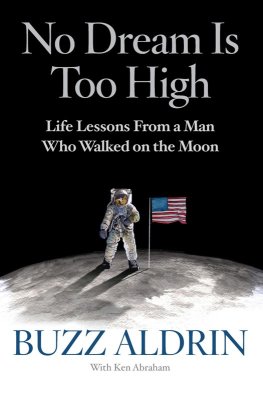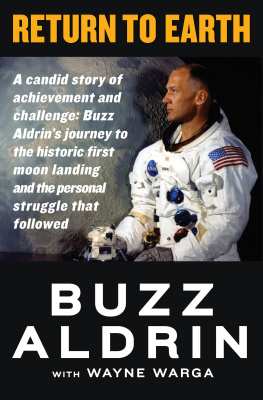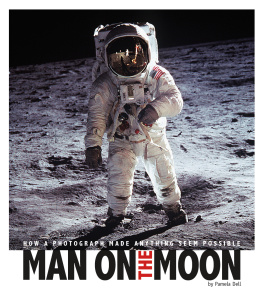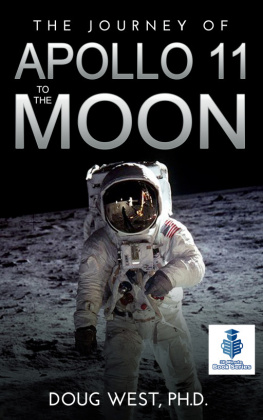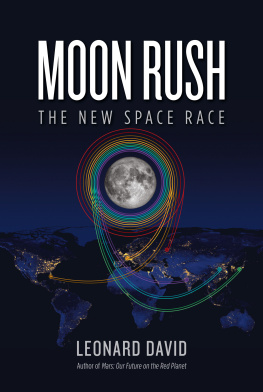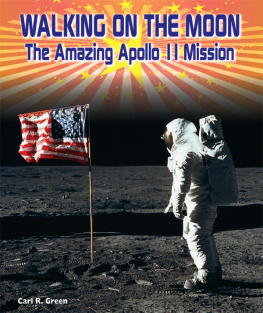Buzz Aldrin - Magnificent Desolation: The Long Journey Home from the Moon
Here you can read online Buzz Aldrin - Magnificent Desolation: The Long Journey Home from the Moon full text of the book (entire story) in english for free. Download pdf and epub, get meaning, cover and reviews about this ebook. year: 2009, publisher: Harmony Books, genre: Non-fiction. Description of the work, (preface) as well as reviews are available. Best literature library LitArk.com created for fans of good reading and offers a wide selection of genres:
Romance novel
Science fiction
Adventure
Detective
Science
History
Home and family
Prose
Art
Politics
Computer
Non-fiction
Religion
Business
Children
Humor
Choose a favorite category and find really read worthwhile books. Enjoy immersion in the world of imagination, feel the emotions of the characters or learn something new for yourself, make an fascinating discovery.

- Book:Magnificent Desolation: The Long Journey Home from the Moon
- Author:
- Publisher:Harmony Books
- Genre:
- Year:2009
- Rating:4 / 5
- Favourites:Add to favourites
- Your mark:
- 80
- 1
- 2
- 3
- 4
- 5
Magnificent Desolation: The Long Journey Home from the Moon: summary, description and annotation
We offer to read an annotation, description, summary or preface (depends on what the author of the book "Magnificent Desolation: The Long Journey Home from the Moon" wrote himself). If you haven't found the necessary information about the book — write in the comments, we will try to find it.
Magnificent Desolation: The Long Journey Home from the Moon — read online for free the complete book (whole text) full work
Below is the text of the book, divided by pages. System saving the place of the last page read, allows you to conveniently read the book "Magnificent Desolation: The Long Journey Home from the Moon" online for free, without having to search again every time where you left off. Put a bookmark, and you can go to the page where you finished reading at any time.
Font size:
Interval:
Bookmark:
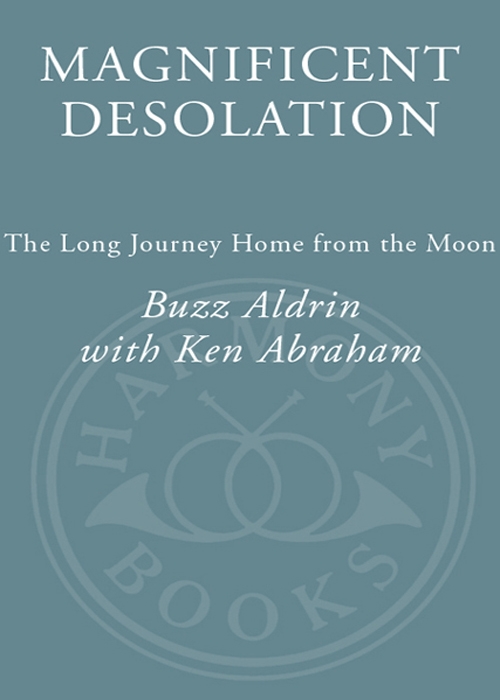
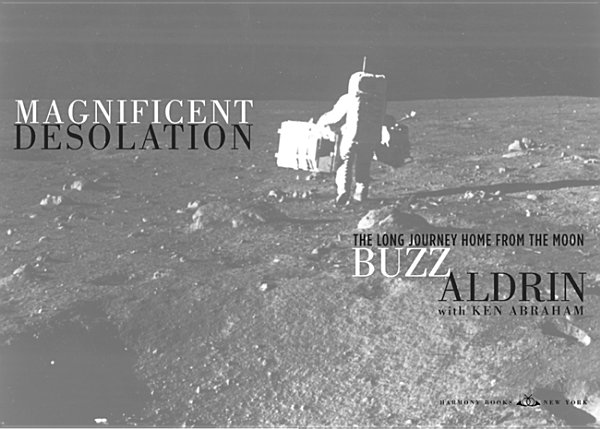
T O MY FELLOW ASTRONAUTS from the Mercury, Gemini, Apollo, and Skylab eras. Each one of these men possessed special talents that contributed to the success of human space exploration. I am proud that I had the privilege of joining these space pioneers who ventured outward to expand mankinds presence beyond our planet Earth.
T O MY PARTNER and great love in life, Lois, who sustains my efforts to chart future pathways to the stars.
22
 1
1ALL MANKIND
Wednesday, July 16, 1969, 6:00 a.m. (EDT) Countdown: T minus three hours, thirty minutes to liftoff. Clear Florida sky.
E LEVATED 300 FEET IN THE AIR ON AN UPPER PLATFORM OF Kennedy Space Centers Launch Pad 39-A, I stood alone on the grating of the towering gantry. A few yards away, loaded with more than 2,000 tons of liquid oxygen and hydrogen propellant, the giant Saturn V rocket also stood, primed for liftoff as the countdown progressed. Large shards of frost were already falling off its outer skin from the super-chilled liquid oxygen within.
Hours earlier my Apollo 11 crewmates, Neil Armstrong and Michael Collins, and I had enjoyed a predawn steak-and-eggs breakfastan astronaut traditionand had gone through an elaborate suiting-up with NASAs equipment team helping us get into our pressurized suits, helmets, gloves, and boots. Along with our Pad Leader, Gnter Wendt, a gray-haired man of German descent who had worked on almost every launch since the early days of the Mercury program, the three of us, carrying our portable air-conditioning ventilators as though we were heading off to work with our briefcases, loaded into the courier van for the short drive out to the launchpad.
Slowly we ascended in the gantry elevator, passing red metal grated walkways at various intervals leading to strategic areas of the rocket. Each of us had trained for his entire life leading up to this moment. As a crew, we had worked together for nearly a year, with Neil and I initially on the backup crew for the gutsy Apollo 8 mission, the first to fly around the moon after only two prior missions with the Saturn V, and then with Mike as the prime crew for the Apollo 11 mission. Because of the seating order in the cramped conditions of the Apollo command modulecomparable to the interior of a small van in which the three of us would live and work for more than a weekclimbing over one another to enter the craft while wearing our spacesuits was next to impossible. So Gnter stopped the elevator about three-fourths of the way up, and dropped me off to wait there on the metal grating while he, Neil, and Mike proceeded two more flights up to where the elevator opened at the white room, the final preparation area leading to the narrow hatch opening to the spacecraft. In less than three and a half hours, if all went well, the enormous rocket, with the power of an atomic bomb, would release an engulfing fireball and lumber off the pad, slowly gathering speed as it rose majestically into the sky, launching Americas first attempt to land human beings on the moon.
The sun had not yet come up and was barely peeking above the horizon as I stood on the grating and peered through the clear bubble helmet I wore. The only sound I could hear came from my ventilation unit. Looking up and down the coastline, my eyes scanned the beaches for miles along the causeway near Cape Canaveral, where more than a million people had started gathering the night before, trekking in cars, motorcycles, pickup trucks, campers, and large motor homes, inching their way through bumper-to-bumper traffic as they sought the perfect launch viewing location. Already people were filling in every available spot of dry ground, and thousands of boats were anchored on the Indian and Banana rivers near the Cape. Without a good set of binoculars, most of the spectators could not see me, and from my vantage point I could barely see them, but I could see the evidence of them in the flickering campfires that dotted the beaches in the pre-dawn darkness. Everyone knew that something big was about to happen.
Because of the danger of explosion should something go wrong, the area immediately near the Saturn V was evacuated except for technicians making their final pre-launch checks. Even if the launch was perfect, no human could stay within several miles of it outside of the Firing Room, the launch control center at the Cape. The hot gases and thunderous noise would consume anyone standing too close to the rocket at ignition. The VIP spectator areafrom which former president Lyndon B. Johnson, the astronauts families, politicians, celebrities, and others with the coveted special pass would watch the launchwas a full three miles away. Even there, the vibrations would be felt, and the roar from the engines would be almost deafening.
I looked to the south, where some of the older launchpads were located, and I couldnt help letting my eyes linger on Launch Pad 34, where, two and a half years earlier, three of my fellow astronautsGus Grissom, Roger Chaffee, and Ed Whitehad lost their lives when they were trapped inside their space capsule in a torrid burst of flames during a pre-launch training test for Apollo 1. Ed had been a year behind me at West Point, where we became friends, and wed later served together in the Air Force as fighter pilots in Germany, flying F-100s in the Big 22 Squadron. He was the key person who had kindled and encouraged my efforts to contribute to the space program and ultimately become an astronaut, and now he was gone.
Instinctively my hand moved to a pocket on my spacesuit that contained a special pouch in which I carried an original mission patch honoring the men who had died aboard Apollo 1, as well as various medals honoring Soviet cosmonauts Vladimir Komarov, who had been killed on Soyuz 1, and Yuri Gagarin, the first man in space. In that same pouch I carried a silicon disk inscribed with wishes from leaders of seventy-three nations of the world, and a gold pin in the shape of the olive branch of peace that we had chosen as a symbol of our mission for all mankind. I planned to leave these tributes on the moon.
Not too far from Pad 34, I could see the remnants of Pad 19, where Jim Lovell and I had crewed the last mission of the Gemini program, for a series of complex rendezvous maneuvers and the worlds first successful spacewalk. It was exhilarating to end that program on a high note and pave the way for Apollo. I thought about how far we had come since mans dream of flight was first realized when the Wright Brothers Flyer took to the air on the Outer Banks of North Carolina, at Kill Devil Hill, near Kitty Hawk, in 1903the very year my mother, Marion Moon, was born. Now, only sixty-six years later, we were aiming for a much longer, more daring, and dangerous flight.
For fifteen minutes I stood on that walkway, suspended from the steadily marching countdown, and enjoying a moment of peace and solitude as I contemplated the journey ahead. I recalled just how wonderful my life had been to get me to this point. All the facets and experiences had worked out along the way to put me in the right place at the right time. Now I was leaving Earth to land on another celestial body, and, if all went as planned, I would return to family and friends, to a full life. Our confidence was highabout 60 percent certain that we would succeed in landing on the moon, the part that had never been done before, and 95 percent that we would make it back home alive. We had trained, tested, and simulated nearly each element of the mission. But there were no guarantees. Even with all the preparation, a myriad of things could go wrong. As astronauts, we were trained to accept such risks, even the risk of not returning.
Font size:
Interval:
Bookmark:
Similar books «Magnificent Desolation: The Long Journey Home from the Moon»
Look at similar books to Magnificent Desolation: The Long Journey Home from the Moon. We have selected literature similar in name and meaning in the hope of providing readers with more options to find new, interesting, not yet read works.
Discussion, reviews of the book Magnificent Desolation: The Long Journey Home from the Moon and just readers' own opinions. Leave your comments, write what you think about the work, its meaning or the main characters. Specify what exactly you liked and what you didn't like, and why you think so.

